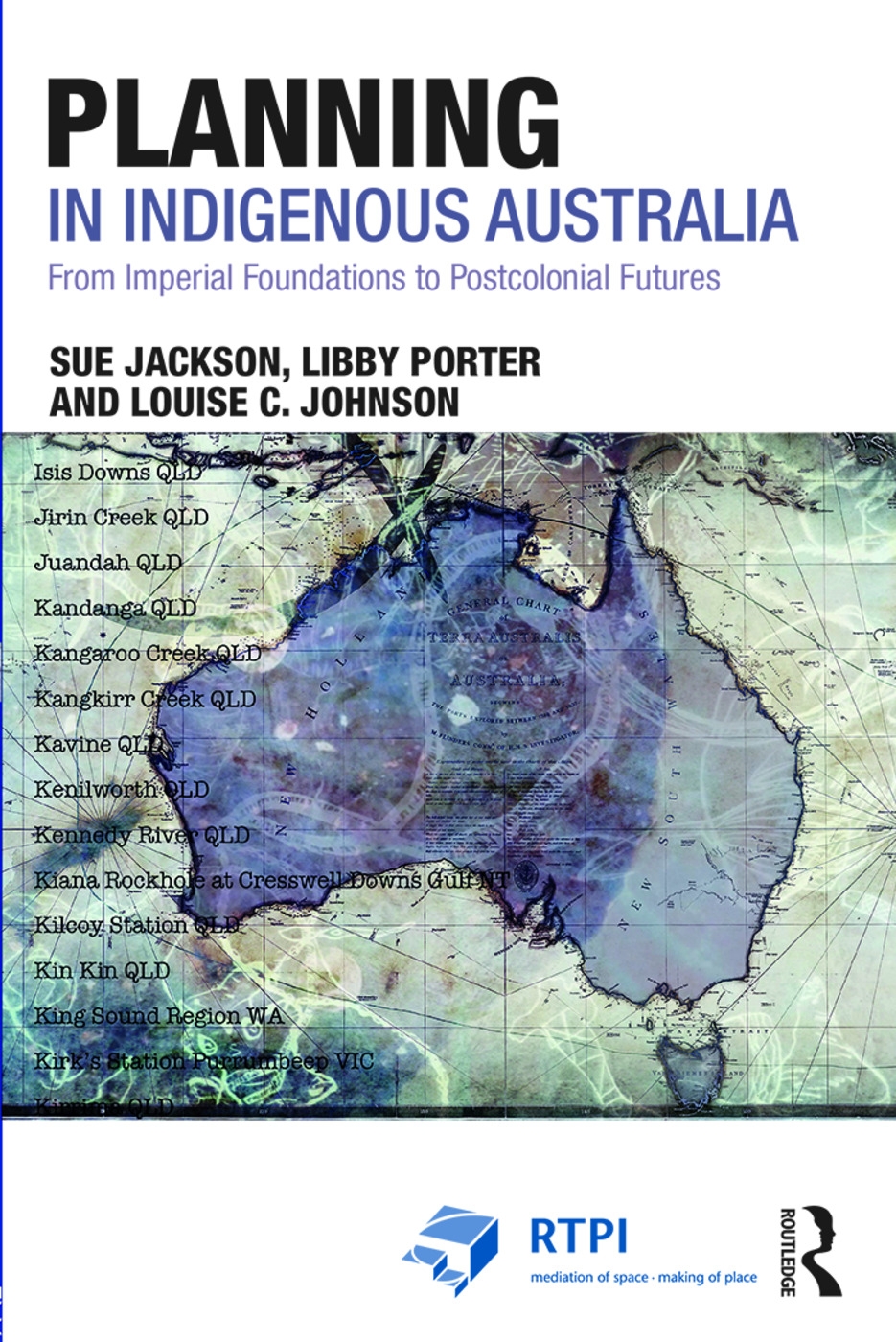There is a huge hole in our contemporary understanding of planning in Australia. While questions of indigenous identity and culture increasingly feature in discussions about contemporary planning practice, historical accounts of planning in Australia often ignore the colonial roots of its assumptions and practice. The first post-colonial account of planning in Australia, Planning in Indigenous Australia: From imperial foundations to post-colonial futures historically situates planning as one of the technologies of colonial dispossession of Indigenous peoples, and looks carefully at contemporary planning both by and with Indigenous peoples, and how this is shifting the understanding of planning in Australia.
Planning in Indigenous Australia rewrites the history and present of Australian planning in order that the profession may work towards reconciliation and a more just planning practice. Sue Jackson, Libby Porter and Louise C. Johnson take planning’s foundational concepts and analyse their impact on colonial land management and Indigenous dispossession. Using a series of illustrative case studies from across the nation, Planning in Indigenous Australia looks back at key shifts in historical and contemporary planning practice, and looks forward to various courses to decolonise Australian planning.

 共
共 








 2025【出題重點一書搞定】計算機概論(含網路概論)[第十六版](國民營事業/經濟部/台電/中油/中鋼/捷運/中華電信)](https://media.taaze.tw/showLargeImage.html?sc=14100117950)
